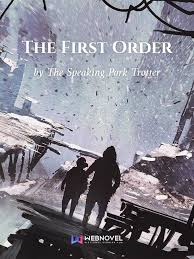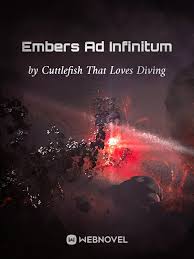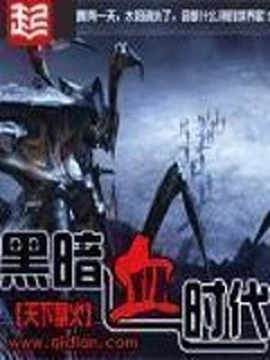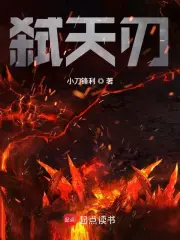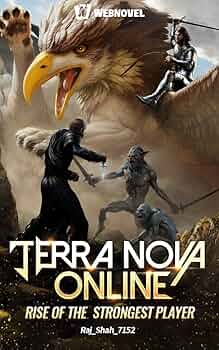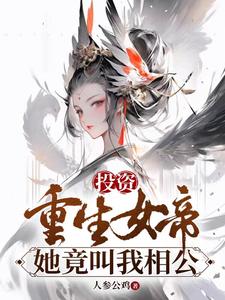The Story in 3 Sentences
In a shattered post-apocalyptic world where humanity clings to survival within fortified strongholds, Ren Xiaosu—a refugee with no status or power—awakens a mysterious mental palace system that grants him incremental supernatural abilities and a path forward through chaos.
As he navigates shifting alliances, moral ambiguity, and escalating threats from both inside and outside the strongholds, Ren Xiaosu evolves from a scrappy survivor into a pivotal figure whose choices challenge the very definition of justice, order, and humanity.
His journey forces readers to confront the blurred lines between good and evil, asking whether the ultimate weapon of mankind is strength, hope, or the will to protect others even when the world offers no reward for doing so.
Why It Stands Out
1. A System That Feels Human
Unlike typical overpowered protagonists in xianxia or system-based webnovels, Ren Xiaosu’s growth is painstakingly gradual and grounded. His mental palace doesn’t grant instant godhood but demands emotional resilience, cleverness, and sacrifice—making every victory feel earned and every loss devastating. The system reflects inner growth rather than external cheat codes, turning personal development into the core engine of the plot.
2. Moral Complexity Without Easy Answers
The novel refuses to paint its factions in black and white. Strongholds may offer safety but enforce brutal hierarchies; rebels may fight for freedom but commit atrocities. As one fan noted, “There is no right or wrong, it just depends on which side you are standing on” . This philosophical stance permeates every major conflict, forcing characters—and readers—to weigh survival against conscience in a world where purity is a luxury few can afford.
3. Humor as Armor Against Despair
Amidst tragedy and ruin, The Speaking Pork Trotter injects sharp, often absurd comedy that never undermines the story’s emotional weight. Ren Xiaosu’s sarcastic wit and deadpan reactions to absurd situations provide levity without trivializing the stakes. This tonal balance—swinging from heartbreak to hilarity within a single chapter—creates a uniquely human rhythm that keeps readers emotionally invested across 1260+ chapters.
Characters That Leave a Mark
There’s Wang Congyang – a stoic and fiercely loyal warrior whose unwavering sense of duty often clashes with Ren Xiaosu’s pragmatic morality, yet his quiet strength becomes a pillar of stability in the group’s darkest hours.
You’ll meet Zhang Baogen, who carries the weight of past failures with dry humor and tactical brilliance, serving as both strategist and reluctant conscience during critical missions outside the strongholds.
And Xu Xianchu? They’re the one who walks the razor’s edge between idealism and ruthlessness, embodying the novel’s central tension: whether order must be built on control or trust.
The Flaws Fans Debate
Some readers argue that the middle arcs drag, with repetitive combat scenarios and filler-like political maneuvering that dilute the early momentum.
Critics point to underdeveloped female characters, noting that even capable figures like Yang Xiaojin often serve narrative functions tied to the protagonist rather than having fully independent arcs.
A vocal segment of the fanbase feels the system mechanics become inconsistent in later chapters, with power scaling occasionally bending to serve plot twists rather than established rules.
Must-Experience Arcs
Ch. 1–50: The Slum Awakening – Ren Xiaosu struggles to survive outside Stronghold 113 with his younger brother Yan Liuyuan, discovering his mental palace and learning that even small acts of kindness can generate the “positive energy” needed to grow.
Ch. 400–550: The Chen Wudi Interlude – A haunting, emotionally raw arc where Ren Xiaosu confronts the legacy of a fallen comrade, exploring themes of guilt, memory, and the cost of heroism in a world that rarely remembers its saviors.
Ch. 1100–1260: The Final Order – As global threats converge and humanity’s last strongholds face annihilation, Ren Xiaosu must decide whether to become the god-like weapon the world demands or remain the flawed man who fights for people, not symbols.
Killer Quotes
“Survive the darkness, see the light.”
“There is no right or wrong, it just depends on which side you are standing on.”
“Don’t let the sorrows of our era be your sorrow as well.”
Cultural Impact
The novel’s tagline—“To be a god, or to be a man”—became a widely shared mantra in Chinese webnovel communities, often quoted in discussions about moral agency in dystopian fiction.
Its adaptation into donghua (Chinese animation) significantly boosted its global visibility, with fan-subbed clips of Ren Xiaosu’s sarcastic one-liners going viral on TikTok and YouTube.
English-speaking readers on Reddit and NovelUpdates consistently rank it among the top post-apocalyptic webnovels for its unique blend of system-based progression and philosophical depth, sparking debates that span hundreds of comments per chapter.
Final Verdict
Start Here If You Want:
A post-apocalyptic journey where the real enemy isn’t monsters or warlords, but the erosion of hope—and how one stubborn refugee refuses to let it die.
A protagonist who wins with wit, empathy, and sheer stubbornness rather than overwhelming power, making his triumphs deeply satisfying.
A story that balances laugh-out-loud comedy with gut-wrenching tragedy, proving that even in the bleakest worlds, humanity’s quirks and connections are worth fighting for.
Study If You Love:
Narratives that deconstruct the “chosen one” trope by grounding supernatural systems in psychological and emotional realism.
Explorations of ethical relativism in collapsed societies, where survival often demands compromises that challenge traditional notions of heroism.
The evolution of Chinese webnovel storytelling beyond cultivation clichés into hybrid genres that merge sci-fi, fantasy, and social commentary.
Avoid If You Prefer:
Fast-paced, action-only plots with minimal introspection or moral ambiguity.
Strong female leads with fully autonomous storylines, as the novel’s supporting women, while capable, often orbit the protagonist’s journey.
Strictly consistent power systems—later arcs occasionally prioritize thematic resonance over rigid rule adherence, which may frustrate readers seeking hard-science fantasy logic.
